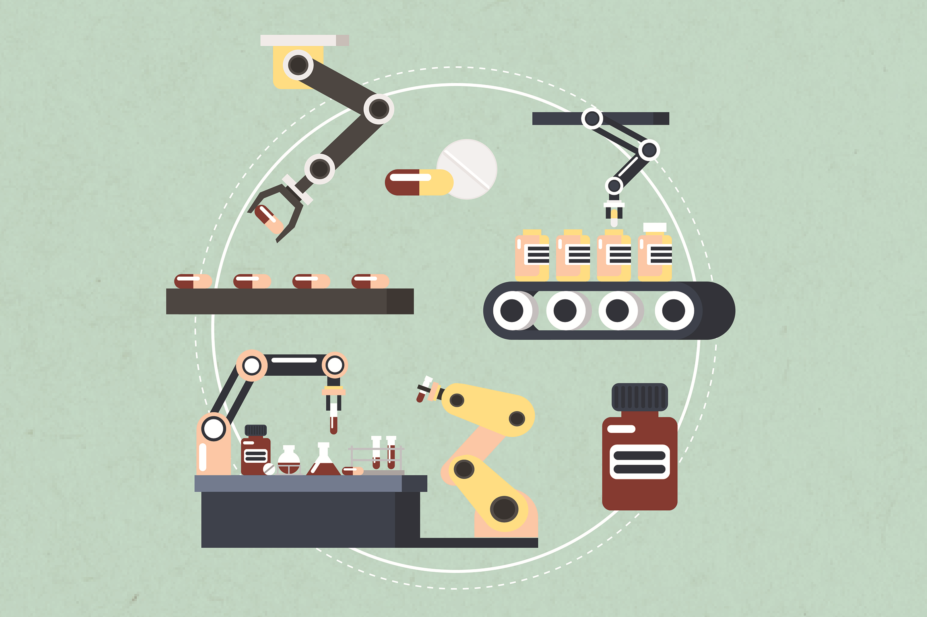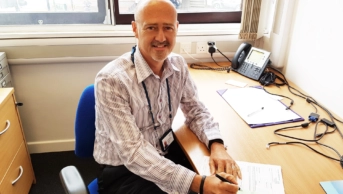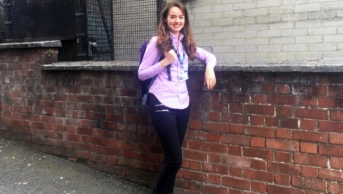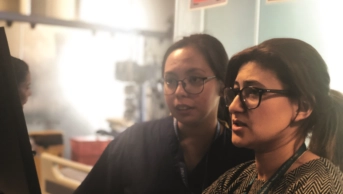
Shutterstock
I am currently spending the first six months of my preregistration training in industry, working in the oral solid dose technical department at GSK. This includes work on a range of quality and continuous improvement projects, such as upscaling the coating process for a novel HIV drug, batch documentation updates and cleaning validation processes. The reason I decided to do a split hospital/industry training programme was to pursue my interest in the technical science of drug development and broaden my understanding of the global supply of medicines, while simultaneously gaining an insight into patients and NHS functions.
Below is an insight into what it is like to work as a preregistration pharmacist within my department.
This is just a brief example of what one day could look like and is by no means what I do every day. Each day is vastly different from the next, but it should give you an idea of the multitude of activities you can perform. As a preregistration pharmacist, I have several responsibilities assigned to me that I carry out as part of my role; however, I also have the opportunity to explore new areas within production, and speak to the many pharmacists, operators and technicians on my site and across the company.
08:30 — Start
I normally begin by catching up on emails and planning out my day to ensure the most efficient use of my time. Each morning, our team, which is made up of product owners, platform leads, technical managers and technologists, meets for our daily tiered accountability process. We discuss the technical and site objectives, any major events that will be occurring that week and our progress in different development campaigns. This is an excellent opportunity to discover what everyone in the team is working on and see if there are any opportunities to support my colleagues or take on any new tasks and developmental opportunities.
It is often around this time that I would carry out data checks for the developmental campaigns I support. As part of the new product introduction team, we liaise closely with the research and development and global supply departments to launch new products; improving and developing them for clinical trials and large-scale manufacture. This is not too different from a prescription accuracy check, ensuring documents are accurate and all information is appropriately sourced. It is also an opportunity to learn more about good manufacturing practice processes, process validation and the intricacies of tablet manufacture as you are reading through these documents. In the same way as with a prescription, I would provide feedback to the authors and sign them off as appropriate.
Late morning
Over the past few months, I have been involved in organising events such as the pharmaceutical development day, a mental health charity bake sale, global inclusion week and antibiotic awareness stands — all of which require planning and preparation. To organise these site-wide events, I have had regular meetings with the co-organisers to evaluate our progress, focusing on logistics, planning, communications and event execution. This is a brilliant chance to develop my skills as each one had its challenges, allowing me to expand my preregistration training portfolio.
Early afternoon
Once per week, I am on the rota for production focus time with a more experienced technologist. I would liken this role to an on-call pharmacist, where one experienced member of the technical team is present and available to tackle any issues which operators come across during production. It is recognised that having a technical professional present reduces yield loss and issues surrounding formulation, ultimately improving the quality of the product produced for the patient. I use this as an opportunity to learn more about different procedures and equipment that I may not be necessarily familiar with. With this role, no two days are the same.
I carry out my other responsibilities during this time, which can range from writing reports, collecting data, inspecting integral evidence towards determining the root cause towards reported deviations, conducting technical risk assessments and supporting internal audits, to name a few. I would also prepare swabbing documents and equipment for one of the combined HIV drugs, and liaise with the production planning team to ensure everything is prepared for the swabbing event. Swabbing is a method to validate critical cleaning within pharmaceutical manufacturing, ensuring the equipment used in the manufacture of a tablet is entirely clean or at the very least within minimum residual limits before it can be used for another product. This is important because it prevents cross contamination between active pharmaceutical ingredients, ensuring safety, efficacy and quality.
17:00 — Finish
I end my day by completing any other outstanding tasks, which can range from approving a document, such as a cleaning development document that I reviewed earlier in the day, scheduling strategy meetings for the coming week for my upscaling project, or proofreading documents I have prepared earlier that day.
How to get a preregistration placement in industry
- Research the company and its values. Read around some of the latest news within the pharmaceutical industry and explore the products in development and the latest technologies and trends. This will not only provide you with a baseline knowledge of the industry but will give you an idea of whether you are well suited to a company.
- Get out of your comfort zone and experience new things. Whether industry related or not, it will build up your softer skills and improve your confidence.
- Be passionate. Experience is not everything. Your role as a prereg will be different to any past experience you may have had. Although it can help you formulate a better understanding of industry, your personality and skills should shine through at the interview.
- Getting an industry preregistration placement is not the ’be all and end all’. Many people become successful in industry without having done their preregistration training in this sector. There are plenty of opportunities after prereg in the form of direct entry roles and graduate programmes.

Source: Aisha Ahmed
About the author:
Aisha Ahmed is a preregistration trainee pharmacist who graduated from the University of Manchester. She is completing her preregistration training in industry at GlaxoSmithKline and hospital at Barts Health NHS Trust.


